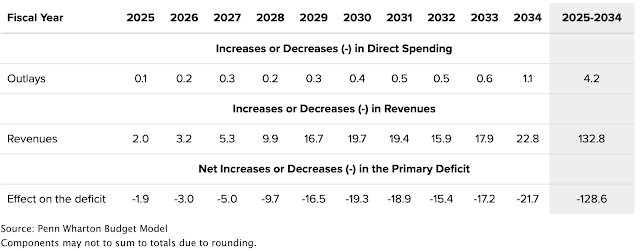Governments have a knack for taxing everything, from property, alcohol, and millionaires to carbon, soft drinks, and recycling. Yet there is an exception I recently came across: the grocery tax. Fewer and fewer states are enacting a consumption tax on their groceries. Oklahoma Governor Kevin Stitt signed off on abolishing Oklahoma's 4.5 percent grocery tax. Earlier this month, Illinois Governor J.J. Pritzker announced eliminating Illinois' 1 percent grocery tax in his budget. If Pritzker is successful, that would mean that there would be 11 states that have a state grocery tax. It makes me wonder why a majority of states no longer have grocery taxes and what the costs of grocery taxes are.
One aspect is related to the impact of taxes generally. Taxes on the whole have two main outcomes: to collect revenue for the government and to discourage the consumption or production of what is being taxed. Since groceries are an essential for people to survive, it could discourage eating. A study from the U.S. Department of Agriculture (USDA) found that a one percentage increase leads to 0.7 percent decrease of food-at-home spending for SNAP-eligible non-participants (Stewart and Dong, 2021). SNAP benefits were not found to be affected, although that might not say much considering SNAP participants have worse health outcomes than low-income non-participants.
That segues us into the second issue of grocery taxes: it discourages healthy eating. One study from Health Economics Review (Wang and Zheng, 2021) showed that "a one percentage point increase in grocery taxes increases obesity and diabetes rates by 0.588 and 0.215 percentage points, respectively."
To quote the Left-leaning Center on Budget and Policy Priorities (CBPP), "Reducing or eliminating grocery taxes offers states a way to help families put more food on the table and afford basic needs." In 2020, CBPP illustrated how households in the lowest quintile spend up to eight times their income on sales tax than the top one percent. The disparate impact makes sense given that lower-income households spend more of their income on food than high-income households (ibid.), which causes greater food insecurity (Zheng et al., 2021).
At first glance, you would think I would be thrilled to see a tax cut. A tax cut seems like a win-win because it means less tax revenue, which in theory should mean less government (although it could also mean more spending with a smaller tax base). This also would help households when inflation has caused such harm, especially to low-income households. As I brought up with a Kansas tax cut in 2017, tax policy is more than "tax cuts = good."
The problem is assuming that exempting groceries from the sales tax helps low-income households. It actually does the opposite. According to the Tax Foundation and its research on the grocery tax, "the poorest decile of households experience 9 percent more sales tax liability with a grocery tax exemption than they would if groceries were taxed and the general rate were reduced commensurately." In part, this happens as a combination of the substitution effects of unprepared foods for prepared foods and the already-existing exemptions for SNAP and WIC beneficiaries. It also happens because to compensate for the exemption, the overall sales tax has to be increased elsewhere.
Exempting groceries from the sales tax also makes tax revenue more volatile. Another appealing aspect of the grocery tax is that it provides a constant source of revenue. Why? Everyone has to eat. Relying on other forms of consumption, especially during an economic downturn, increases revenue volatility. Plus, it erodes the tax base because having a broad sales tax base minimizes economic distortions and administrative and compliance burdens. The burden on low-income households is less, given that groceries make up a smaller portion of overall revenue. They have decreased from 14 percent of disposable income in 1960 from approximately 5 percent in 2022 (U.S. Department of Agriculture), thereby diminishing an argument of burden on low-income households.
The reality is that we are not going to live in a world without government. Yes, I would like for government to be significantly smaller than it is, but a government in either case needs a revenue base. I have asked these questions about which sorts of taxes are preferable, not whether taxes should exist. I have no love for the wealth tax. I find the corporate tax problematic enough that I would prefer a capital gains tax over a corporate tax.
As for the consumption tax, I worry about how states could respond if they exempt groceries. In addition to raising the sales tax, I also have concerns that they could raise income taxes instead. The problem is that consumption taxes are more efficient than income taxes. To quote the Tax Foundation:
"Income taxes impose steeper economic costs, and often steeper administrative and compliance costs, than consumption taxes. They place a higher tax burden on saving and investment. They also impose significant administrative and compliance costs that undermine the large anti-poverty programs for families and children administered through the tax code."
I am not looking at this as a matter of a utopia with zero government or zero taxes. I am looking at whether having a grocery tax beats the alternative. Based on the data we have, the answer is "no." It is better to have a grocery tax with a lower overall sales tax rate than it is having a grocery tax exemption. It is not only preferable for tax revenue purposes, but also for the purpose of helping out lower-income households. As counterintuitive as it seems for a libertarian, I am against a grocery sales tax exemption.





